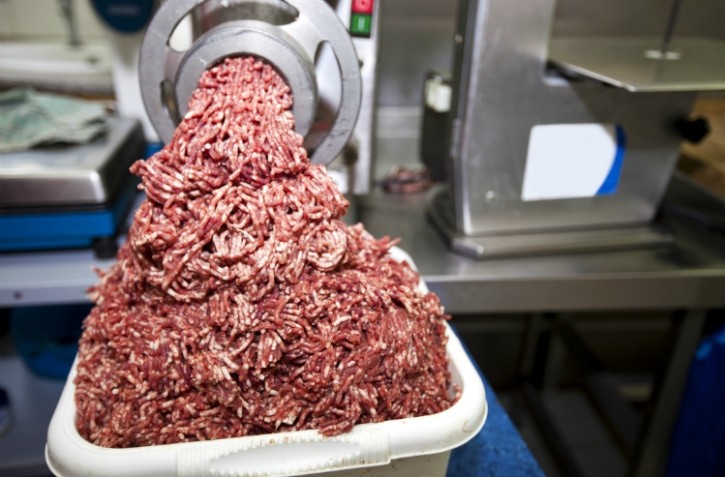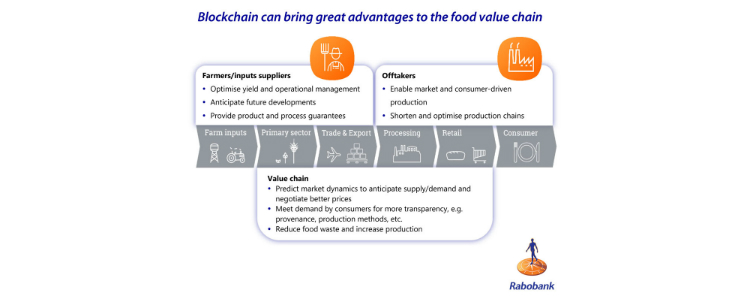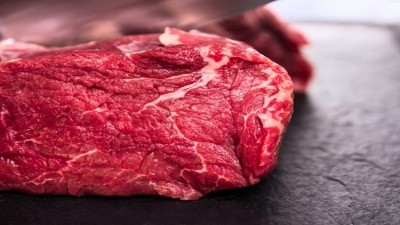Blockchain technology to ‘trigger’ disruption

Dutch financial services outfit Rabobank claimed food producers, including meat firms, needed to explore blockchain technology to cut costs and meet rising demand for sustainable produce.
Rabobank said the major disrupter of the industry could bring three benefits to the supply chain in its report on blockchain.
It could cut operating costs due to efficiency gains made from lower transaction fees and automated payments, resulting in faster processes.
The second benefit is increased transparency. Shared information on blockchain technology means that once data is added at one end of the chain, it can be viewed by all participating links, which should be a massive help in the event of food safety issues, making risky produce easier to track, trace and recall.
New business creation is the third benefit. Rabobank pointed to asset-based financing, risk management services, predictive modelling and new trading platforms for small businesses as key areas for new business growth.
Help for food safety-hit meat firms
Over 26,000 tonnes of meat was recalled in America last year, according to the US government. Harry Smit, senior analyst at Rabobank, explained why “tackling food safety issues” would be simplified by blockchain technology.
“Product recalls can be much easier when the entire chain is transparent,” he said.
“Transparency of the food chain also means that the benefits of reputation that market leaders have will decline. Trust in a product will become less dependent on the trust in the supplier, but more dependent on the information available in the blockchain. This enables smaller companies to establish premiums based on the intrinsic characteristics of the goods they supply, without necessarily having a longstanding reputation.”
While Rabobank outlined these three potential supply chain benefits of blockchain technology, the company said the key to maximising their potential lay in the “digitalisation of internal and external processes”.
This means everyone in the blockchain, from suppliers to supermarkets, needed to participate fully and get all records online, it said. Failure to do this meant the chain, which could improve traceability and food safety, would be compromised.
















